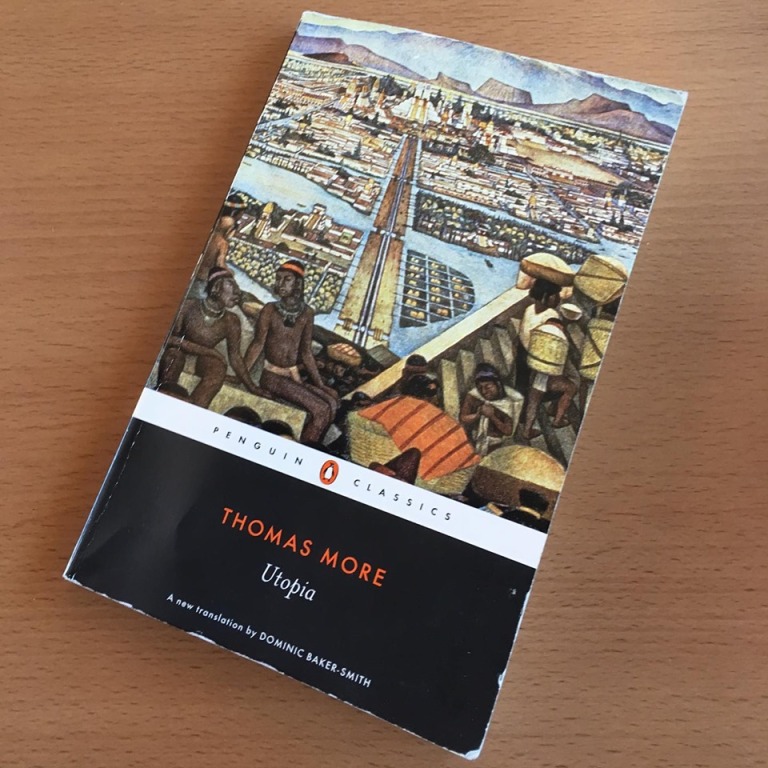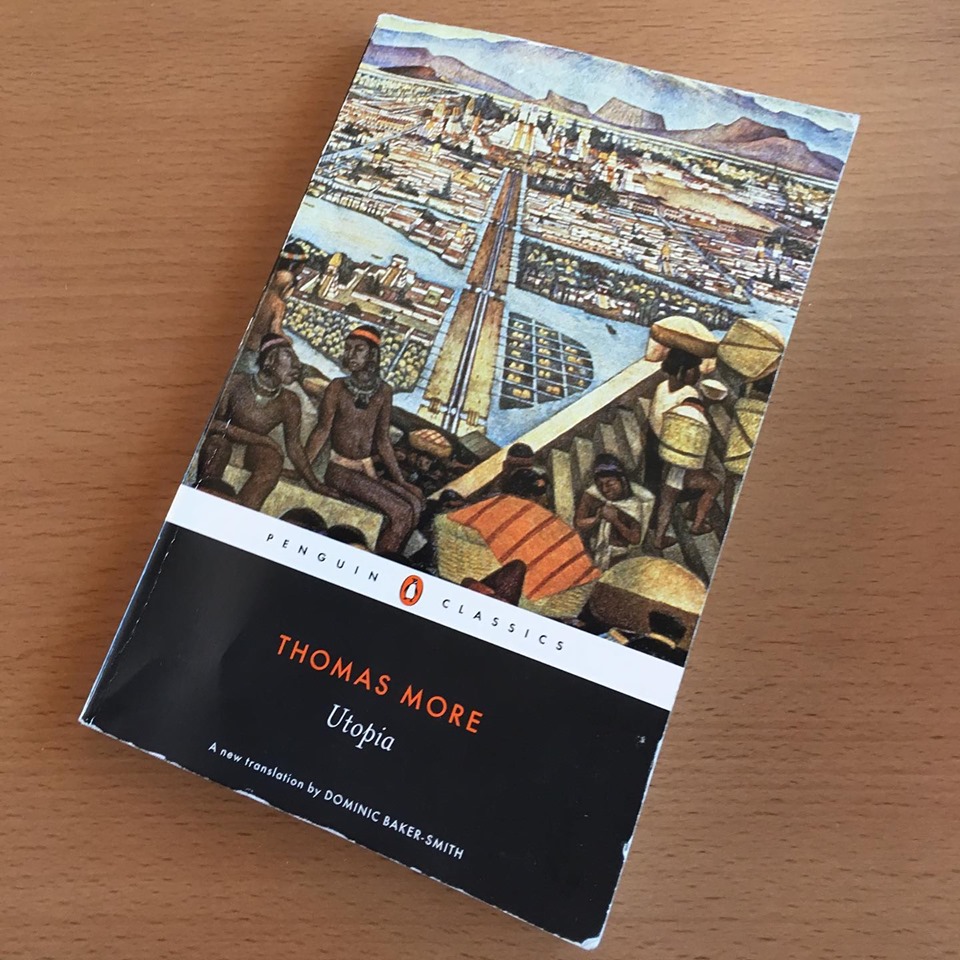May Book Review: “Utopia” by Saint Sir Thomas More
9/10, absolutely amazing, would definitely recommend
What a book! Saint Sir Thomas More’s writings on an idealistic, “utopian” society are not only eye-opening but intriguing as well.
Discussing a sort of Catholic Communism, where money isn’t real and all possessions are publicly owned, peace is pursued above glorious victories in battle, and religion worshipping one god plays a significant role due to its rational and natural basis, he presents a fascinating image of a pacific and logical society. Much to his probable dismay, he was actually included by Marx and Engels as being one of the founding fathers of English communism. It would appear that he and his contributors were actually emphasising the ideal of monastic living, which is referenced quite a lot, however.
Regardless of his intention, he writes by reflecting on the Humanism of his day (which mustn’t be confused for the form we have today) which encouraged exploring the ancients’ philosophy and truly understanding it, instead of merely learning things by rote. The whole book is written as though a recollection of a conversation with a man who had visited Utopia and clearly admired the Utopians’ way of life. The first section covers “his” perceptions of the injustices of society (such as the death penalty for thieves which he says fails as a deterrent) and better alternatives. The second section launches into an explanation of Utopia, its history and its lifestyle.
More’s use of the Greek and Latin languages to make clever quips, such as his naming of places (like the River Anydus (waterless), the title of Utopian city governors, Ademus (people-less), and even the name of the island itself, Utopia (no-place)) keeps the reader fully immersed in a society that sounds real whilst consistently being reminded that it is all but an illusion.
Helpfully, More provides alternative views in the form of his hypothetical responses and thoughts to what his conversation partner says. Thus, while clearly promoting one side of the argument, he attempts to second guess his opponents’ rebuttals.
In short, this is a brilliantly written book (if a little archaic due to being around 500 years old) which encourages you to hope for a better future while grounding you with the near impossible practicalities that surround the supposed ideal world.


